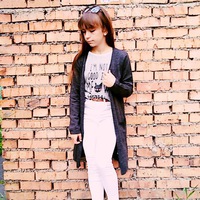
Вставь буквы в окончание имен прилагательных указывай слова командиры. в скобках пиши вопросы,
выделяй окончания. Решисобака почувствовала сильный голод и пошла искать заячий след.2) ( )Внезапный порыв ветра испугал зайца.Он побежал своими ( ) заячьими прыжками, выбрасывая ( ) задние но.ки вперед.В каких именах прилагательных вопрос неточно подсказал окончание? В формах какого рода так бывает? ( ) 0
0
 0
0
Ответы на вопрос
 Внимание! Ответы на вопросы дают живые люди. Они могут содержать ошибочную информацию, заблуждения, а также ответы могут быть сгенерированы нейросетями. Будьте внимательны. Если вы уверены, что ответ неверный, нажмите кнопку "Пожаловаться" под ответом.
Внимание! Ответы на вопросы дают живые люди. Они могут содержать ошибочную информацию, заблуждения, а также ответы могут быть сгенерированы нейросетями. Будьте внимательны. Если вы уверены, что ответ неверный, нажмите кнопку "Пожаловаться" под ответом.

3)какими? ИМИ. Какие? ИЕ
 0
0
 0
0

Answer:
The given text mentions the actions of a dog and a hare. Let's analyze the adjectives used to describe them and identify any inconsistencies in the endings.
The text mentions the following adjectives: 1. "заячий" (hare's) - This adjective is in the genitive case, singular, masculine form. It agrees with the noun "след" (trail) and indicates possession. The ending "-ий" is typical for adjectives in the masculine form in the genitive case. 2. "заячьими" (hare's) - This adjective is in the instrumental case, plural, masculine form. It agrees with the noun "прыжками" (jumps) and indicates the means or instrument. The ending "-ими" is typical for adjectives in the masculine form in the instrumental case.
Based on the given text, there are no inconsistencies in the endings of the adjectives used to describe the hare. Both adjectives have the correct endings for their respective cases and genders.
Now, let's discuss the forms of adjectives and when such inconsistencies can occur.
In Russian, adjectives agree with the nouns they modify in gender, number, and case. This means that the endings of adjectives change depending on the gender, number, and case of the noun they are associated with.
In the given text, the adjectives "заячий" and "заячьими" are in the masculine form. However, adjectives can also have different forms for feminine, neuter, and plural nouns.
For example, if we were to describe a feminine noun, such as "кошка" (cat), with an adjective, we would use the feminine form of the adjective. The ending of the adjective would change accordingly. Similarly, if we were to describe a neuter noun or a plural noun, the adjective would have different endings.
Inconsistencies in adjective endings can occur when there is a mismatch between the gender, number, or case of the noun and the form of the adjective used. This can happen due to errors in grammar or incorrect agreement between the noun and the adjective.
In conclusion, based on the given text, there are no inconsistencies in the endings of the adjectives used to describe the hare. Adjectives in Russian change their endings to agree with the gender, number, and case of the noun they modify. Inconsistencies in adjective endings can occur when there is a mismatch between the noun and the form of the adjective used.
I hope this explanation clarifies the use of adjectives in Russian. If you have any further questions, feel free to ask!
 0
0
 0
0
Топ вопросов за вчера в категории Русский язык
Последние заданные вопросы в категории Русский язык






-
Математика
-
Литература
-
Алгебра
-
Русский язык
-
Геометрия
-
Английский язык
-
Химия
-
Физика
-
Биология
-
Другие предметы
-
История
-
Обществознание
-
Окружающий мир
-
География
-
Українська мова
-
Информатика
-
Українська література
-
Қазақ тiлi
-
Экономика
-
Музыка
-
Право
-
Беларуская мова
-
Французский язык
-
Немецкий язык
-
МХК
-
ОБЖ
-
Психология
-
Физкультура и спорт
-
Астрономия
-
Кыргыз тили
-
Оʻzbek tili















